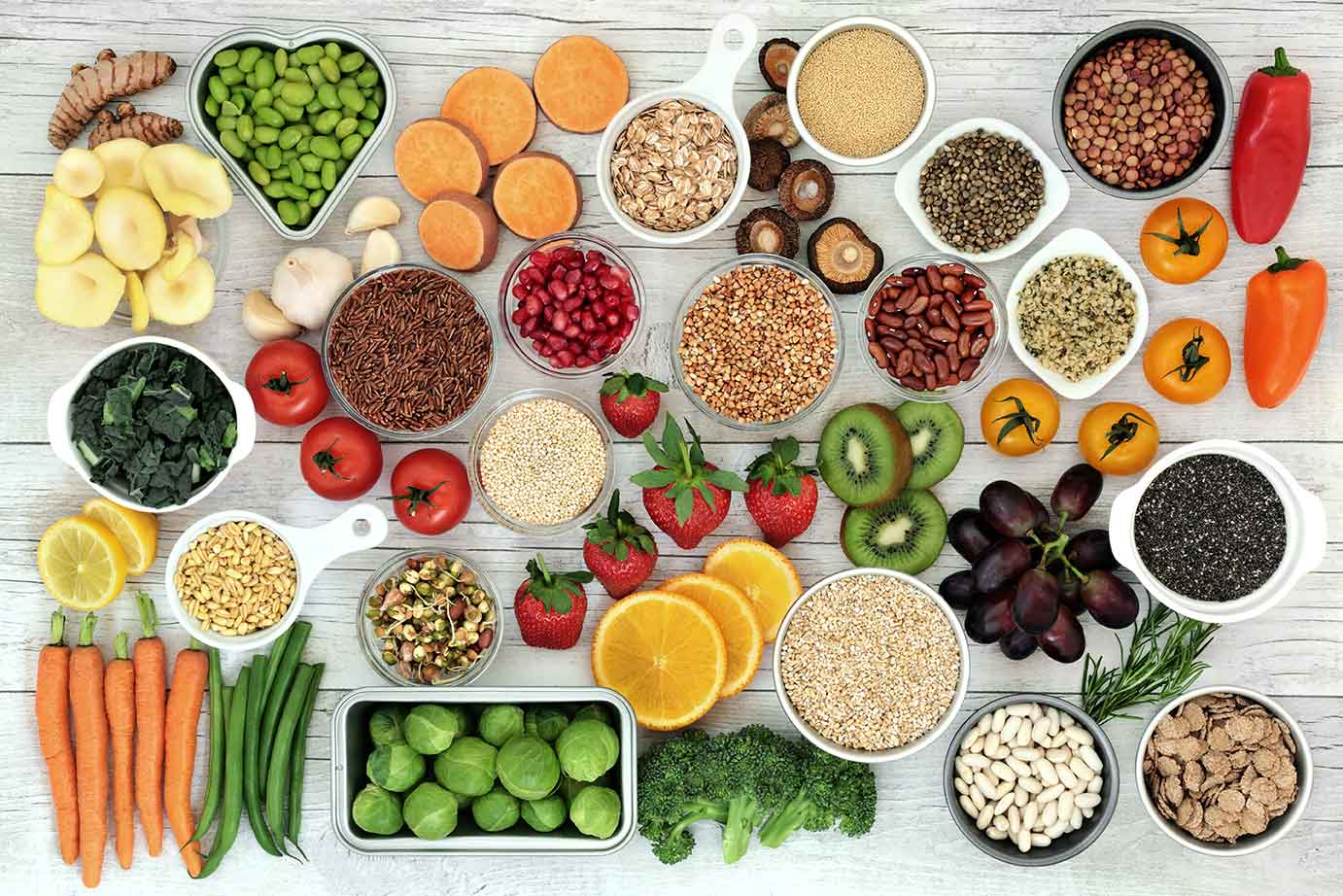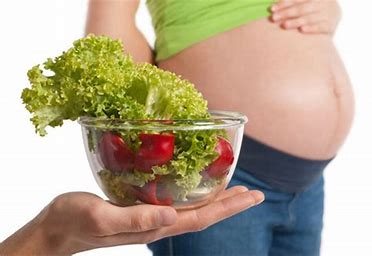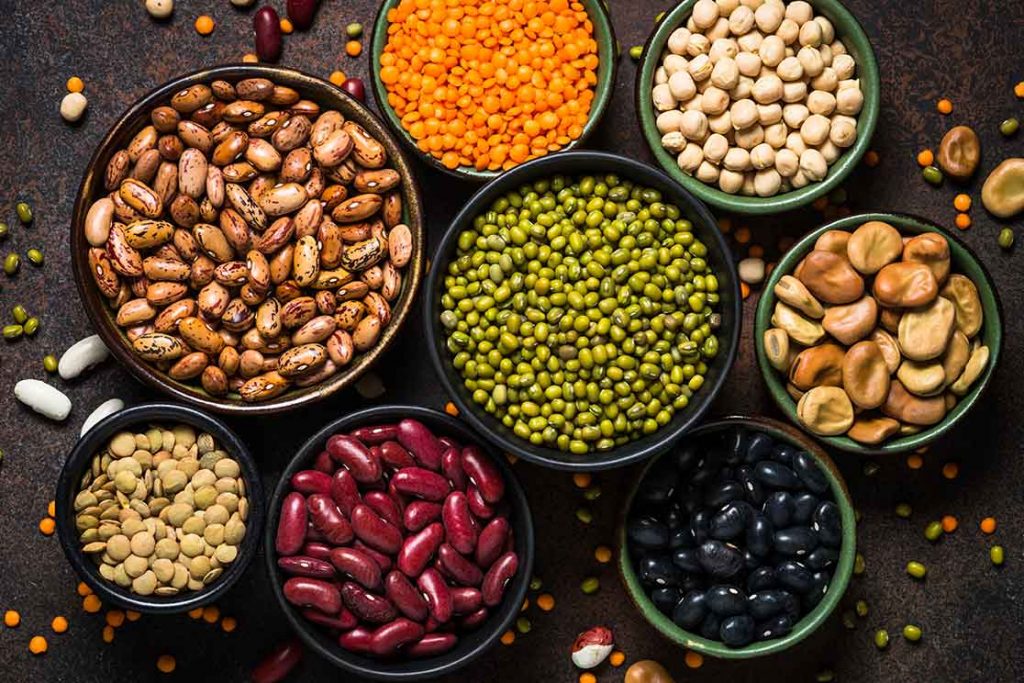
General nutritional support to maintain hormonal balance and nourish reproductive organs may prove very helpful for women with a high risk of threatened abortion "spotting" or unable to conceive.
However, before considering any nutritional protocol for this health challenge, women should rule out or address the following conditions:
- Balanced chromosomal translocations in the parents.
- Uterine and cervical abnormalities
- Chronic infection
- Connective tissue disorders
- Hormonal abnormalities
When starting on a natural fertility supplement with complimentary nutritional and herbal support, it is essential to do so at least 3 months before conception. Additionally, it is essential to address gastrointestinal and liver function to improve bioavailability of key fat-soluble compounds and optimal balance of intestinal microflora.
Natural fertility supplements high in specific nutrients leading to a healthy pregnancy:
A- Chlorophyll:
In the 1950s, Ann Wigmore author of Be Your Own Doctor and Viktoras Kulvinskas author of Survival Into the 21st Century found in green foods what gave them their remarkable health-enhancing benefits; chlorophyll. When we think of addressing nutritional deficiencies, we think of vitamins and mineral supplements, but we don’t usually think of taking a chlorophyll pill as one of the nutrients we rely on to enhance our health. After you read the following impressive list of chlorophyll health benefits, you will know why chlorophyll is the most important part of my recommended nutritional supplement program to enhance fertility.
What is chlorophyll?
“Chlorophyll is the sun nutrient which is the basis for all plant life activity; the green blood of plants becomes the red blood of animals and humans.” (Alive and Well , 2002, p.112). Since its molecular structure is very similar to hemoglobin in human blood, chlorophyll in green foods can help strengthen the immune system, support healthy blood and circulation as well as help to maintain proper operation of the intestinal tract (p. 112). It is believed that the magnesium content of chlorophyll may have immune potential by increasing phagocyte activity (white blood cells that gobble up microbes). (Let’s Live, 1992, p. 37).
Why is chlorophyll important in addressing infertility?
Of particular interest with respect to women at risk for spontaneous blood loss or infertility are the lipophilic side-chains of chlorophyll. In this chain is a molecule called phytol. This fraction of chlorophyll is fat soluble in its naturally occurring form in green foods and is very beneficial for women at risk for hemorrhaging during pregnancy or simply not able to get pregnant. This molecule contains the blood-clotting factor found in the vitamin K complex.
However, in order for the body to be able to utilize vitamin K in green foods, a balanced bacterial composition in the colon is very important to make vitamin K present in the blood stream. Research has shown that a relative increase in harmful gut bacteria can lead to a vitamin K deficiency even if a good amount of green foods are consumed daily.

In addition to a healthy amount of friendly bacteria, bile and pancreatic juices are necessary for the absorption of the various forms of vitamin K in green foods. If there is an absence of the necessary gastric secretions, this important vitamin will not be carried to the liver for further processing. All of these factors highlight the importance of addressing gastrointestinal issues prior to conception.
Something else is very important in chlorophyll. Chlorophyll is an antagonist of guanidine. Guanidine is a toxin released into the blood as a result of trauma (including pregnancy-associated trauma to the uterine lining), or muscle fatigue in a natural attempt to eliminate dead or defective cell clusters. This is a beneficial and natural phenomenon to the extent that it eliminates “bad” cells. However, a pregnant woman with a history of miscarriage and/or threatened abortion or simply unable to get pregnant, may be predisposed to producing an excess of guanidine that can ultimately cause more damage than repair (Gina Nick, Whole Food Nutrition, pg. 28). The most important factors in chlorophyll leading to a healthy pregnancy is the lipophilic factors namely phytol located in the atom of magnesium.
A summary of the above paragraphs is the following:
- Phytol is important because it contains the vegetable-derived blood clotting factor found in the vitamin K complex.
- A healthy friendly bacteria balance is important in the gastrointestinal track in order to allow the body to absorb and utilize vitamin K.
- Further, bile and pancreatic juices are necessary for the absorption of the various forms of vitamin K from the upper small intestine for subsequent transport to the liver.
- Chlorophyll prevents toxicity reactions associated with miscarriage by functioning as an antagonist to guanidine protecting any damage to the uterine lining.
What food has the highest amount of chlorophyll?
Chlorophyll in green foods are important for women at high risk of spontaneous blood loss and infertility.
Dr. Gitte Jensen at the Royal Victoria Hospital, affiliated with McGill University in Canada touted the remarkable benefits of eating wild crafted micro algae; a food considered to contain the highest amount of chlorophyll. (Consumption of AFA..., JANA, January 2000, p. 50).
Chlorophyll content per 10 grams in different green food supplements:
- Wild micro algae 300 mg
- Spirulina 115 mg
- Chlorella 280 mg
- Barley Grass 149 mg
- Wheat Grass 55 mg
(“Simply The Best”, 1992, p. 3).
Not only is the Wild micro algae I’m recommending for you has the highest amount of chlorophyll content but is also the only micro algae in the world that has achieved NSF certification/GMP certification. GMP are standards for quality supplements set by the FDA and NSF (National Sanitation Foundation). Also this specific micro algae is certified organic and kosher.

B- Iodine:
Did you know that iodine deficits can hurt fertility? Although iodine is best known for helping to promote proper thyroid functioning, it has also been found to play a crucial role in helping women become pregnant.
A study that was done by the US National Institute of Child Health and Human Development tested the urine of 467 women who were attempting to conceive. The study found that nearly a quarter of all urine samples showed significant deficiency of iodine. Previous research had found that 30% of women of childbearing age have iodine blood levels below the target of 100 micrograms per liter.
Iodine is crucial for proper fetal brain and nervous system development and helps regulate the baby’s metabolism. A deficiency during pregnancy can also cause the mother to suffer from an underactive thyroid, marked by fatigue, cold sensitivity and other symptoms. The best dietary sources of iodine include the organic micro algae I recommend on this website, goat yogurt, and organic eggs.
C- Vitamin B1:
While folic acid, part of the B vitamin family, gets all the attention for its role in preventing birth defects, another member of the B-complex may be just as vital for moms-to-be.
Deficits in vitamin B1 have been linked to fertility problems in a Japanese study. The study team fed a diet deficient in B1, also known as thiamine, to two sets of mice, one for 13 days and the other for 21 days. The mice in the first group developed a mild lack of vitamin B1, which became a severe deficiency in the second group. Mice with severe B1 deficiencies had higher percentages of abnormal oocytes, cells in the ovary that eventually become eggs. The team theorized that the presence of such cells could lead to infertility and miscarriage.
Writing in the journal Nutrition and Metabolic Insights, the team did note that numbers of abnormal oocytes returned to the normal range by refeeding the mice with a vitamin B1-containing diet. (Energy Time, September/October 2017, pg. 10).

Keep in mind that there are at least 25 members of the vitamin B complex group identified so far. They are all interrelated, meaning they depend on each others to work in the body.
There exists a close interrelationship among the B vitamins that an inadequate intake of one may impair the utilization of others. But taking a B vitamin like for example B1 alone as an isolated chemical can create a vitamin imbalance and precipitate deficiency of other members of the B complex group. Thus, the B complex should be taken as a whole, with all members –known and unknown-present, rather than any single substance or isolated substances of the group as in most commercially sold vitamins in the market.
Micro algae, sunflower seeds, and legumes such as beans, lentils and peas are high sources of vitamin B complex including B1, which promotes proper energy production and a healthy nervous system.
D- CoQ10
Coenzymes Q10 is a fat soluble Quinone occurring in the mitochondria of every cell, whose primary biochemical action is a cofactor in the electron transport chain on which most cellular functions rely, making it essential for the health of virtually all human tissues and organs. Plasma levels of this coenzymes rise during normal pregnancy, reaching highs of 50% above normal by the 36th week. Decreased levels have been linked to studies to spontaneous abortion and threatened abortion, particularly before 12 weeks. (Townsend Letter for Doctors – January 2002, pg. 144).
Other nutrients:
I could go on listing important nutrients that can lead to a healthy pregnancy such as zinc, vitamin E, different amino acids….etc., but I’m going to stop right here and share this important information about what nutritional supplements you should consider.
Dr. Howard Hagglund, former faculty member at the University of Oklahoma, states that "(the) best way to get both minerals and vitamins is from food. But foods today seldom contain enough essential minerals and vitamins...because (our) farmland has been ruined. It only takes ten years of intensive modern farming methodology to exhaust the minerals in any tract of land." Agricultural land is typically fertilized with only potassium, phosphorus, and nitrogen. "Unfortunately, many other essential minerals (including molybdenum, manganese, magnesium and zinc) are not replenished."
Even organically grown food may not contain all the minerals that plants need to develop full nutrient richness because the minerals are not put back into the soil along with the organic matter.
A natural fertility treatment is to supplement your body with nutrient rich foods. Between improving your diet and the supplements I will discuss in the following pages, you have an unbeatable diet and supplement program that can lead to a healthy pregnancy.

Contact me with your questions, or click here if you're interested in a free assessment.